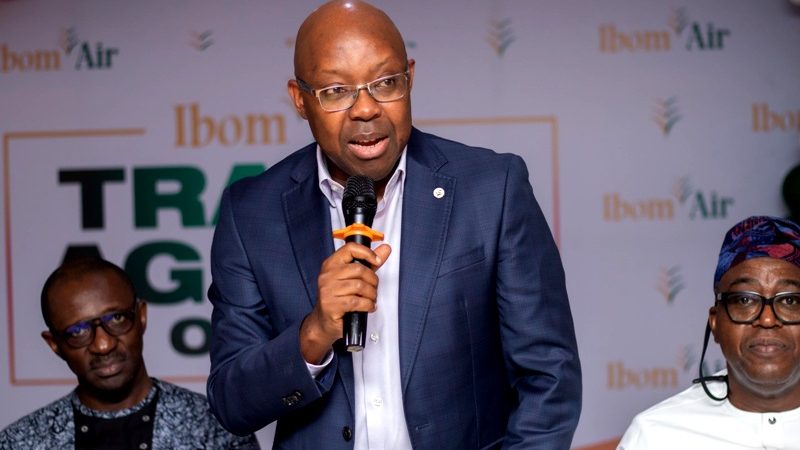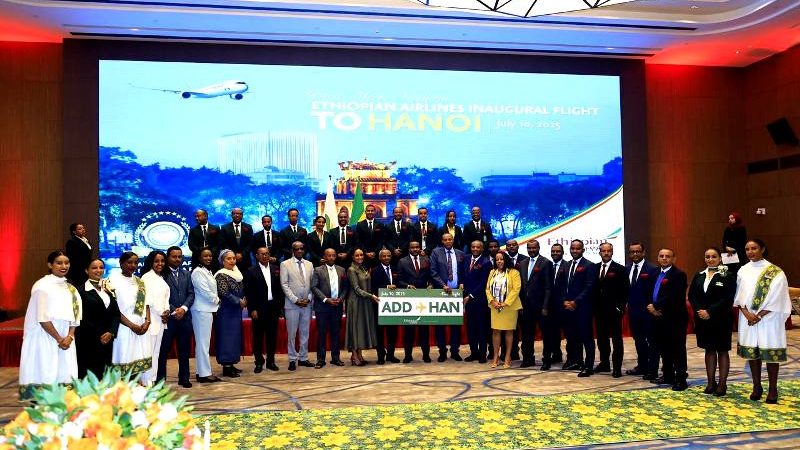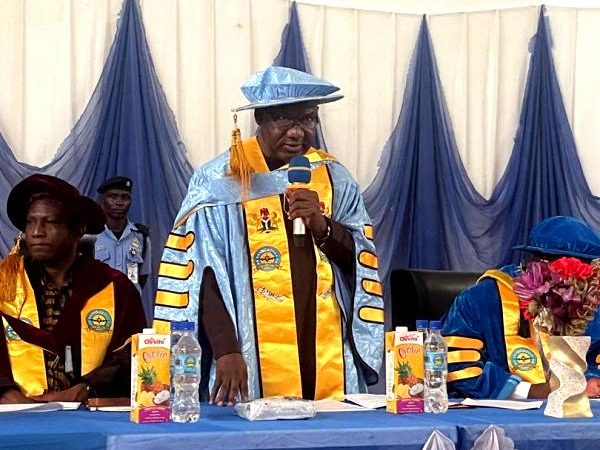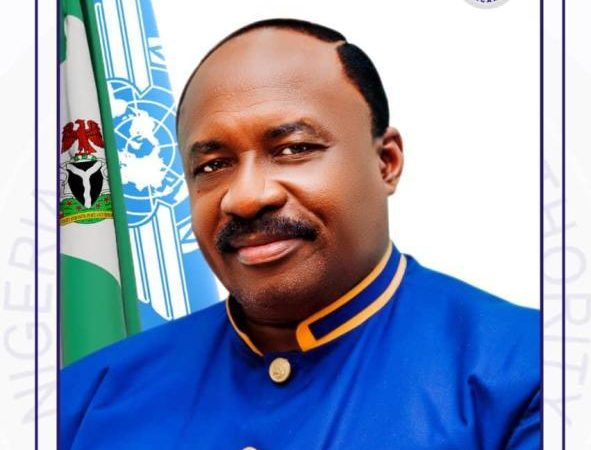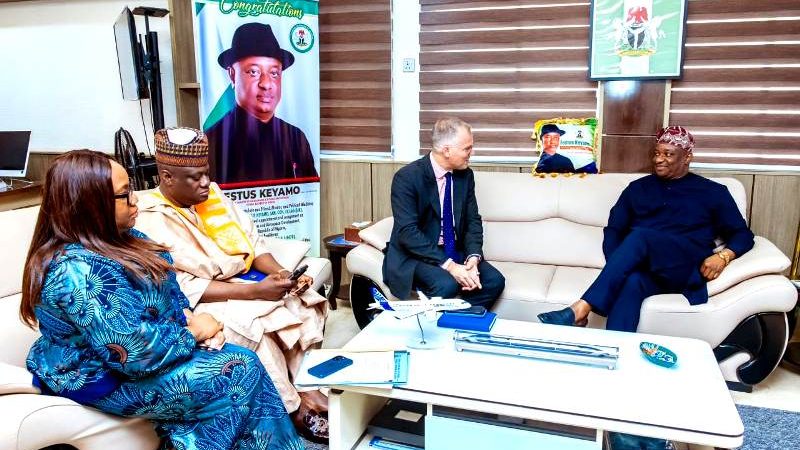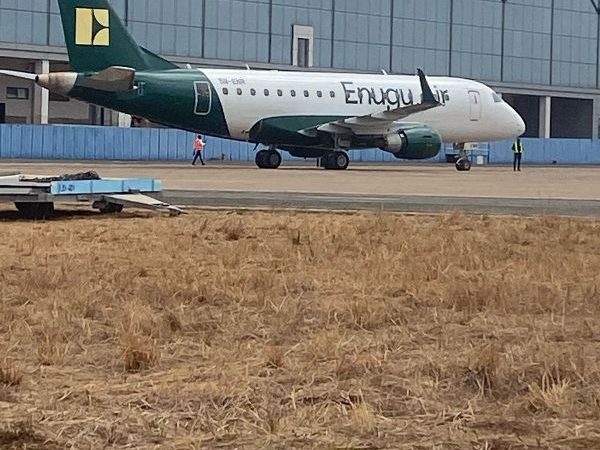How To Reduce Agitations Over Airlines’ Trapped Funds, By Bankole Bernard

The Group Managing Director, Finchglow Holdings, Mr. Bernard Bankole says the only way to reduce the apprehensions and agitations over the airlines’ millions of dollars that have been trapped with the Central Bank of Nigeria (CBN) “is that there should be a communiqué from the government, which will give them some assurances that the country is not planning to devalue and this won’t affect them and that they will repatriate their money as it were.”
Speaking during an interview with aviation journalists in Lagos, Bankole said “it is very important that when things like this happen, there is room for communication especially from the government. In business, you will always have an exposure and the exposure is the fact that your money is tied down, but you know you are always going to get it because it’s a credible country. But when your money is tied down and it will eventually lose value, then, the agitation will be more. That is why they want to cut capacity because if you cut capacity, if the devaluation eventually happens, they will be able to cut their losses. Or on the other hand, they will seek what we call yield. In aviation, airlines make their money through two ways; volume and yield. The volume is to have a lot of people to fill the capacity of the aircraft so you can afford to sell discounted fares. On the yield, you will know that even if you sell 30 per cent of the capacity of your aircraft, you know you are not losing because you are selling using yield.”
Bankole further explained how adjustments in capacity by foreign airlines could affect travel agents’ business.
“An economy ticket to Dubai now is about N800,000. So, if you insist you want to buy it, you are buying at 100 per cent or more in increase in fares. So, you have to be desperate if you want to do that. If you are paying about N1 million for an economy ticket, you can imagine what the business class would be like. So, on that particular ticket, no matter how you devalue your naira, the airline is not losing out. With this, it means that what is available for us to sell is reduced. So, there is reduction in the inventory and once there is reduction in the inventory, it affects our sales, but because it is summer now, we are still not feeling the impact until after this season, then, we will start feeling the brunt.”
Bankole explained that it was not the first time airlines were facing the issue of trapped funds. “This also happened, I think in 2016 when the total trapped fund of the airlines was far higher than whatever we have now. It was about $750m then and they were making a particular comparison because as at that time, Venezuela was also going through the same challenges and they owed a lot more to the extent that Lufthansa had to stop flying to Venezuela.
Then, some of the things we noticed were reduced capacity. Air tickets became more expensive and that is exactly what we are seeing now. But, one critical reason they are more agitated is that in 2016 after their money was held back without being repatriated, Nigeria devalued its currency and as a business person, they felt that if they had taken their money out, they would not have been affected by the devaluation. So, that is the fear they are nursing now because if the currency is devalued, it means that they would have lost several percentage of that money they intend to repatriate.”
On how Nigerian airlines can stay longer on international routes, Bankole advised them to get their commercials right.
“I think the lack of Commercial Directors is putting a lot of burdens on the Nigerian airlines. Before any airline goes into operating a new route, you must have robust planning of your expected performance on such a route. The Nigerian airlines should get their commercials right. Other people are getting it right and they come to Nigeria despite the aviation fuel challenge and the problem of forex.
For every time we go to the Central Bank of Nigeria (CBN) to buy dollars, do you know that the Federal Government is subsidizing it for us? What some of our airlines are saying is that the government should continue to subsidize them to remain in business. That is not how a business is done. Our airlines choose the foreign routes they want to operate into and one expected them to have put their figures together.
Why can’t Nigerian carriers realize the fact that there are more opportunities in this market and the West Coast for them, which will add more value to their bottom line than the long hauls? Someone told me recently that a flight to Maiduguri is now about N400,000 and I said that makes a lot of sense. It is either you want to fly or you go by road where you may be kidnapped. It is not the airlines’ fault that they are charging that amount of money, but it is the reality on ground.
The fact is that the cost of tickets would still soar higher than what we are experiencing at the moment because several things act as determining factors. Everything that has to do with air transport is dollar denominated. So, if it is dollar denominated, how can we ensure business success for our people? That is what we should be thinking about.
Our airlines on foreign routes should request to pay their taxes from Nigeria on the foreign routes in naira instead of dollars. This will make them stabilize in foreign routes instead of Nigerian airlines to canvas for a license to start selling aviation fuel. They can approach the government for a more practicable way out. As an industry, let’s not lose focus on our business decisions,” said Bankole.


